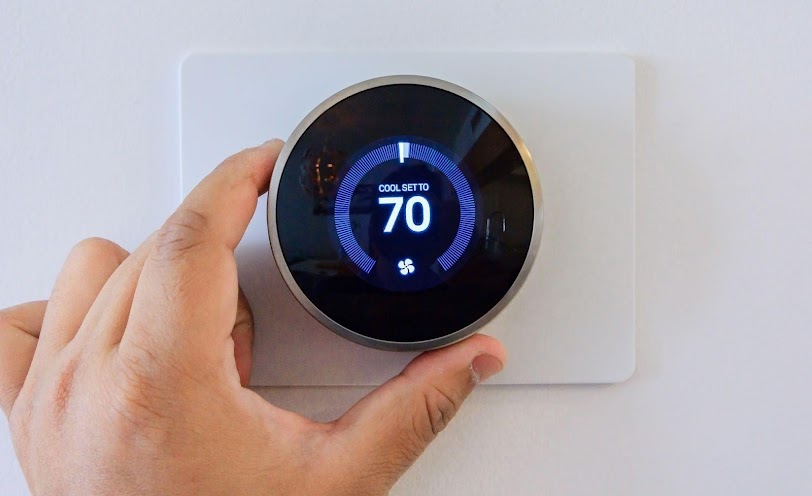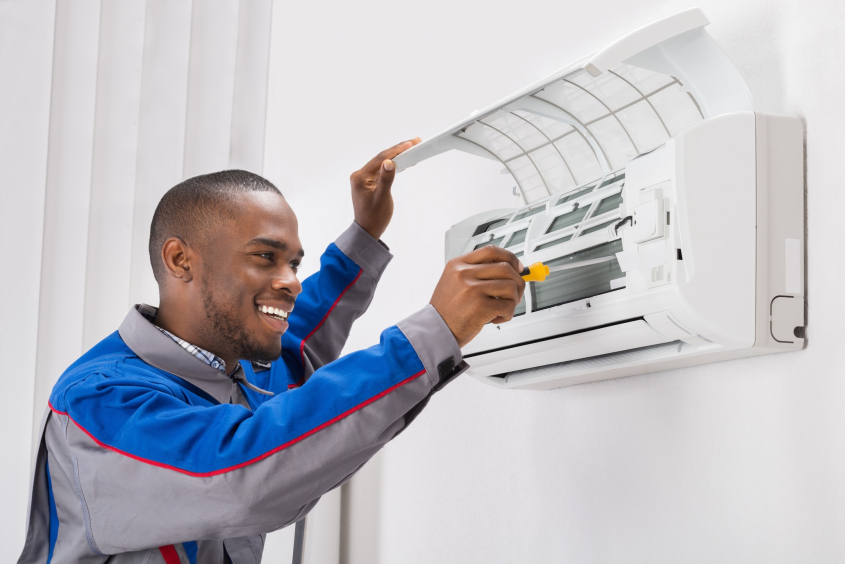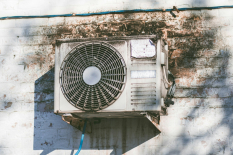To keep your home cool and comfortable during the scorching summer months, proper AC maintenance is essential. Regular maintenance not only ensures the efficient operation of your air conditioning system but also helps prolong its lifespan. In this section, we will explore the role of AC maintenance and the benefits it provides.
Importance of AC Maintenance
The Role of AC Maintenance
AC maintenance plays a crucial role in keeping your air conditioning system running smoothly. It involves a series of tasks that should be performed regularly to identify and address any potential issues before they escalate into major problems. Some key aspects of AC maintenance include:
- Cleaning and inspection: Regular cleaning of air filters, vents, and ducts helps maintain proper airflow and prevents the buildup of dust and debris. Inspections help identify any damaged components or signs of wear and tear.
- Lubrication: Proper lubrication of fan motors and other moving parts reduces friction and helps prevent overheating, ensuring the longevity of the system.
- Condenser coil cleaning: Cleaning the condenser coil removes dirt and debris, allowing for efficient heat transfer and preventing the system from working harder than necessary.
- Checking refrigerant levels: Proper refrigerant levels are essential for optimal cooling performance. Regular maintenance includes checking and adjusting refrigerant levels as needed.
Benefits of Regular AC Maintenance
Regular AC maintenance offers several benefits, both in terms of comfort and cost savings. Some of the key advantages include:
- Improved energy efficiency: A well-maintained air conditioning system operates more efficiently, resulting in lower energy consumption and reduced utility bills.
- Enhanced cooling performance: Regular maintenance ensures that your AC system is operating at its peak performance, providing consistent and effective cooling throughout your home.
- Extended lifespan: By addressing minor issues and performing necessary repairs in a timely manner, regular maintenance helps extend the lifespan of your air conditioning system, saving you from the expense of premature replacement.
- Reduced risk of breakdowns: Regular inspections and maintenance help identify and address potential problems before they lead to major breakdowns, minimizing the need for costly emergency repairs.
- Improved indoor air quality: Cleaning air filters, vents, and ducts as part of maintenance helps remove dust, allergens, and other pollutants, improving the air quality in your home.
By prioritizing regular AC maintenance, you can enjoy a comfortable and cool home environment throughout the summer while minimizing energy consumption and reducing the risk of costly repairs. Remember to consult a professional HVAC technician for comprehensive maintenance services. For more tips and information on home improvement during the summer, check out our article on summer home improvement trends & ideas.
Preparing for Summer
As the summer season approaches, it’s essential to ensure that your air conditioning system is ready to keep you cool and comfortable. Proper maintenance of your AC unit can help prevent breakdowns and improve energy efficiency. In this section, we will discuss three important steps to prepare your AC for the summer: cleaning and replacing air filters, checking and cleaning vents and ducts, and clearing debris around the outdoor unit.
Cleaning and Replacing Air Filters
One of the simplest yet crucial tasks for AC maintenance is cleaning and replacing the air filters. Over time, dust, dirt, and other particles can accumulate in the filters, restricting airflow and reducing the cooling efficiency of your AC system. It is recommended to clean or replace the filters every 1 to 3 months, depending on usage and the type of filter.
To clean reusable filters, gently vacuum or rinse them with water until all the dirt is removed. Allow the filters to dry completely before reinstalling them. If you have disposable filters, replace them with new ones according to the manufacturer’s instructions. Regularly cleaning or replacing the air filters not only helps maintain proper airflow but also ensures cleaner indoor air quality.
Checking and Cleaning Vents and Ducts
Another important aspect of AC maintenance is checking and cleaning the vents and ducts. Over time, dust, pet hair, and debris can accumulate in the vents and ductwork, obstructing airflow and reducing cooling efficiency. It is recommended to inspect the vents and ducts for any blockages or signs of dirt buildup.
Using a vacuum cleaner with a brush attachment, gently clean the vents to remove dust and debris. If you notice excessive dirt or mold growth in the ducts, it may be necessary to hire a professional duct cleaning service to ensure thorough cleaning and prevent potential health issues. Clean vents and ducts allow for better airflow and more effective cooling throughout your home.
Clearing Debris Around Outdoor Unit
The outdoor unit of your AC system, also known as the condenser unit, is exposed to various outdoor elements, including leaves, grass clippings, and dirt. It is important to clear any debris around the outdoor unit to ensure proper airflow and prevent potential damage to the system.
Start by removing any large debris or vegetation that may have accumulated around the unit. Use a hose or a soft brush to gently clean the fins of the condenser coil, taking care not to bend or damage them. If the fins are heavily clogged, you may need to use a fin comb or contact a professional HVAC technician for assistance. Maintaining a clear and debris-free area around the outdoor unit allows for optimal performance and cooling capacity.
By following these maintenance steps and ensuring that your AC system is in good condition, you can enjoy a cool and comfortable summer while potentially saving on energy costs. For more information on common air conditioning problems and how to address them, check out our article on common air conditioning problems.
Maintaining Efficient Operation

To ensure that your air conditioning unit operates efficiently during the summer months, there are several key maintenance tasks to prioritize. By checking and adjusting thermostat settings, cleaning the condenser coil, and inspecting and lubricating the fan motor, you can keep your AC running smoothly and help save on energy costs.
Checking and Adjusting Thermostat Settings
The thermostat plays a crucial role in maintaining a comfortable indoor temperature. Start by checking the thermostat’s batteries and replacing them if necessary. Next, ensure that the thermostat is set to the appropriate temperature for your comfort. Adjusting the temperature by a few degrees can make a significant difference in energy consumption. For more information on common air conditioning problems, refer to our article on common air conditioning problems.
Cleaning the Condenser Coil
The condenser coil, located in the outdoor unit of your air conditioner, is responsible for releasing heat from the refrigerant. Over time, dust, dirt, and debris can accumulate on the coil, hindering its efficiency. Regularly cleaning the condenser coil is essential for maintaining optimal cooling performance. Use a soft brush or a vacuum cleaner with a brush attachment to gently remove any debris from the coil’s fins. For more comprehensive maintenance tips, consider scheduling professional HVAC maintenance. Learn more about HVAC maintenance in our article on HVAC maintenance.
Inspecting and Lubricating Fan Motor
The fan motor in your air conditioning unit is responsible for circulating air throughout your home. Regular inspection and lubrication of the fan motor can help prevent unnecessary strain and extend its lifespan. Start by turning off the power to the AC unit. Carefully remove the access panel and visually inspect the fan motor for any signs of wear or damage. If you notice any issues, it’s best to contact a professional for repairs. If the motor is in good condition, apply a few drops of lubricating oil to the designated oiling ports. This will help reduce friction and keep the motor running smoothly.
By checking and adjusting thermostat settings, cleaning the condenser coil, and inspecting and lubricating the fan motor, you can ensure that your air conditioning unit operates efficiently throughout the summer. Remember to refer to our article on air conditioner blowing hot air for troubleshooting tips if you encounter any issues. Additionally, scheduling professional maintenance on an annual basis can provide a thorough inspection and ensure your AC system is in top-notch condition. Stay cool and save energy by following these AC maintenance tips.
Ensuring Proper Airflow
Proper airflow is essential for the efficient operation of your air conditioning (AC) system. In this section, we will explore three key aspects of AC maintenance that help ensure optimal airflow: checking and cleaning evaporator coils, clearing the condensate drain line, and inspecting and sealing ductwork.
Checking and Cleaning Evaporator Coils
The evaporator coils in your AC system play a crucial role in cooling the air that is circulated throughout your home. Over time, these coils can accumulate dirt, dust, and debris, which can hinder their ability to absorb heat effectively. Regularly checking and cleaning the evaporator coils is vital for maintaining efficient airflow and preventing potential damage to the system.
To clean the evaporator coils, start by turning off the power to the AC system. Access the coils, typically located above the furnace or inside the air handler unit. Gently brush off any visible dirt or debris using a soft brush or a vacuum cleaner with a soft brush attachment. Be careful not to bend or damage the delicate fins on the coils. If the coils are heavily soiled, it may be necessary to use a coil cleaner specifically designed for this purpose. Follow the manufacturer’s instructions and rinse off the cleaner thoroughly.
Clearing Condensate Drain Line
The condensate drain line is responsible for removing the excess moisture that is produced during the cooling process. Over time, this drain line can become clogged with algae, mold, or debris, which can cause water to back up and potentially damage your AC system. Regularly clearing the condensate drain line helps prevent such issues and ensures proper airflow.
To clear the condensate drain line, locate the drain pipe usually near the indoor unit. Use a wet/dry vacuum or a pipe cleaner to remove any blockages. Alternatively, you can mix equal parts of water and vinegar and pour it down the drain line to help dissolve any buildup. Remember to turn off the power to the AC system before performing any maintenance.
Inspecting and Sealing Ductwork
Leaky ductwork can significantly impact the airflow and efficiency of your AC system. Inspecting and sealing any leaks in the ductwork is crucial for maintaining proper airflow and maximizing the effectiveness of your cooling system.
During a routine inspection, carefully examine the visible ductwork for any visible leaks, loose connections, or damaged sections. Pay close attention to areas where the ducts are joined or connected to vents and registers. Use foil tape or mastic sealant to seal any leaks or gaps. Properly sealed ductwork helps ensure that the cooled air is efficiently delivered to each room, reducing energy waste.
Regular maintenance of the evaporator coils, condensate drain line, and ductwork is essential to maintain optimal airflow and improve the overall performance of your AC system. By following these maintenance tips, you can help extend the lifespan of your AC system and enjoy a cool and comfortable home during the summer months. For more information on common AC problems and maintenance, visit our article on common air conditioning problems.
Additional Tips for AC Maintenance
In addition to the essential maintenance tasks, there are a few additional tips that can help optimize your AC system’s performance and keep your home cool and comfortable during the summer months.
Managing Humidity Levels
High humidity levels can make your home feel warmer and more uncomfortable, even if the air conditioning is running. To manage humidity levels and enhance the effectiveness of your AC system, consider using a dehumidifier in areas prone to excess moisture, such as basements or bathrooms. This can help remove excess moisture from the air and create a more comfortable indoor environment.
Using Ceiling Fans and Window Coverings
Ceiling fans are a great complement to your AC system, as they help circulate cool air throughout the room. By using ceiling fans in conjunction with your AC, you can create a cooling breeze that allows you to set your thermostat at a slightly higher temperature without sacrificing comfort.
Window coverings, such as blinds or curtains, can also play a significant role in maintaining a cooler indoor environment. Closing curtains or blinds during the hottest parts of the day can help block out the sun’s heat and prevent it from entering your home. This reduces the workload on your AC system and helps keep your home cooler.
Scheduling Professional Maintenance
While regular maintenance tasks can be performed by homeowners, it’s important to schedule professional AC maintenance at least once a year. Professional technicians have the expertise to thoroughly inspect and service your AC system, ensuring that it operates at peak efficiency and identifying any potential issues before they become major problems.
During a professional maintenance visit, the technician will perform tasks such as checking refrigerant levels, inspecting electrical connections, cleaning coils, and lubricating moving parts. This comprehensive service helps extend the lifespan of your AC system and ensures that it operates efficiently throughout the summer.
To schedule professional maintenance for your AC system, reach out to a reputable HVAC company in your area. They can provide expert guidance and ensure that your AC system is in optimal condition for the summer season.
By following these additional tips for AC maintenance, you can maximize the efficiency and performance of your AC system, keep your home cool and comfortable, and potentially save on energy costs. Remember to also refer to our previous sections on preparing for summer, maintaining efficient operation, and ensuring proper airflow for a comprehensive AC maintenance routine.
















